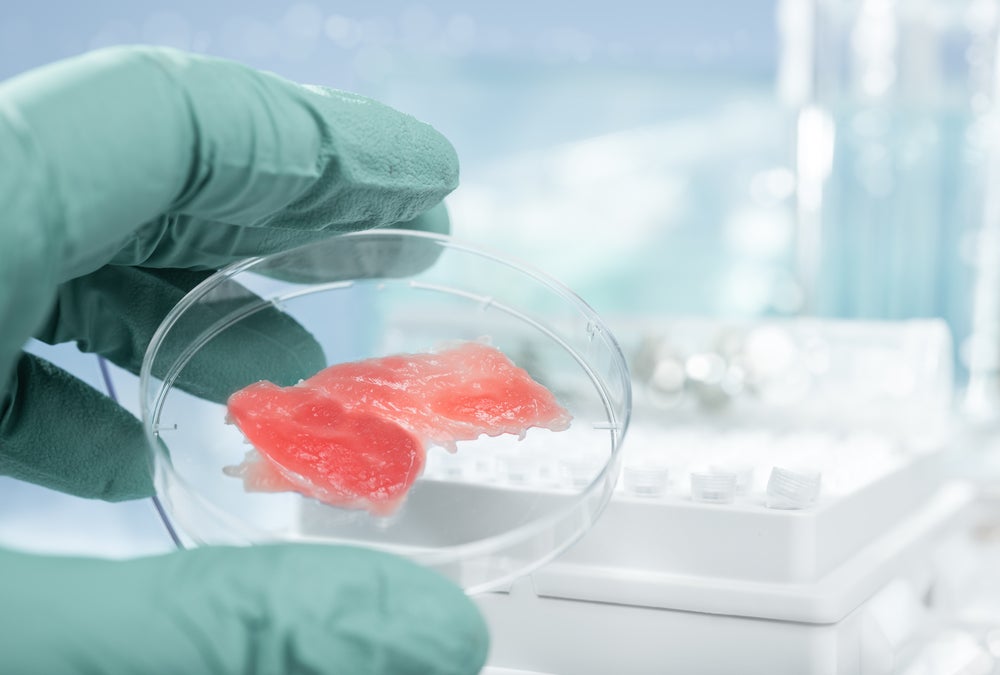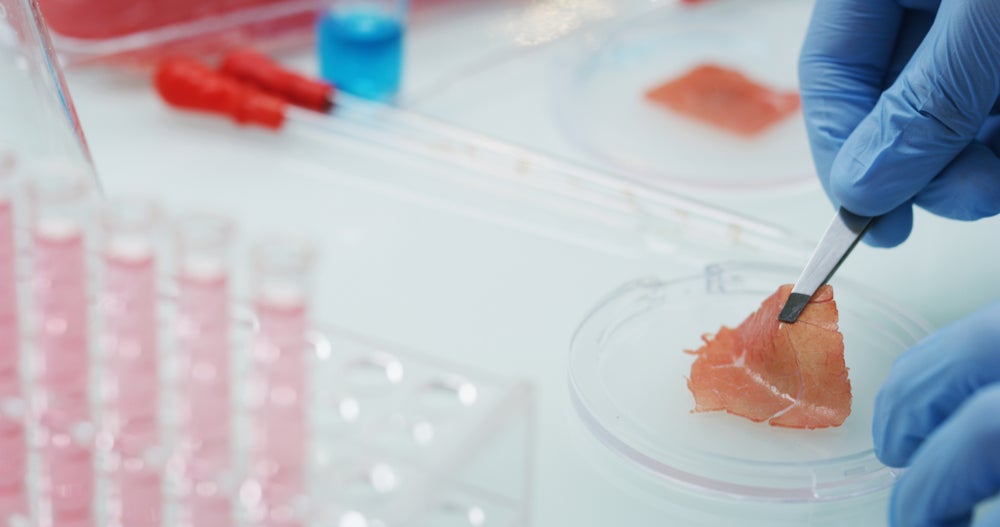Texas has become the latest battleground in the national fight over lab-grown meat. This week, California-based cultivated meat companies UPSIDE Foods and Wildtype filed a federal lawsuit against state officials, arguing that a new law banning the sale of their products represents unconstitutional government overreach.
The lawsuit, backed by the Institute for Justice, challenges Senate Bill 261, which went into effect September 1. The measure prohibits the “manufacture, processing, possession, distribution, offer for sale, and sale of cell-cultured protein” in Texas for two years.
“This law has nothing to do with protecting public health and safety and everything to do with protecting conventional agriculture from innovative out-of-state competition,” said Paul Sherman, senior attorney at the Institute for Justice during a news conference. “That is not a legitimate use of government power.”
Background on SB 261
Texas Gov. Greg Abbott signed the bill into law on June 20, 2025. Under its terms, violators face penalties ranging from fines of up to $25,000 per day to possible jail time. The ban is set to expire September 7, 2027, at which point lawmakers will revisit whether to extend or end the measure.
Lawmakers backing the bill raised concerns about transparency, labeling, contamination risks, and the long-term health effects of consuming lab-grown meat. Ranchers also warned about the potential impact on Texas’ cattle industry.
During a March hearing, state Sen. Charles Perry, R-Lubbock, said he had “concerns over the transparency and labeling, risk of contamination, and long term health impacts of consuming cell culture products.”

Dan Gattis, a Georgetown rancher and lawyer, told Sen. Louis Kolkhorst, “I would see the lab grown meat as against it,” when asked whether such products aligned with the “Make America Healthy Again Movement.”
The plaintiffs argue that Texas’ ban violates both the Commerce Clause and the Supremacy Clause of the U.S. Constitution. They claim it discriminates against out-of-state businesses and conflicts with federal laws regulating meat and poultry.
“For the same reason California cannot ban Texas beef in California, Texas cannot ban salmon or chicken from California,” said Uma Valeti, CEO and founder of UPSIDE Foods. “Texans deserve the freedom to decide for themselves what to eat without politicians choosing for them.”
Justin Kolbeck, co-founder of Wildtype, said the ban is “unconstitutional” and “un-American.” He added: “We do believe that Americans should have the freedom to choose what to eat. We think even if you hate the idea of cultivated seafood, we hope you agree that we’re on a slippery slope if we’re handing over intensely personal choices like what to feed ourselves and our families to the government.”
Sherman noted that both the U.S. Food and Drug Administration and the U.S. Department of Agriculture have approved cultivated meat as safe. “The USDA and The FDA have agreed that these products are safe,” he said. “If that’s not good enough for some consumers, there’s a simple solution, don’t eat it.”
Cultivated meat, also called cell-cultivated or cultured meat, is produced by growing animal cells in bioreactors until they form edible products. UPSIDE Foods produces chicken, while Wildtype specializes in salmon.
Kolbeck argued that their products avoid contaminants found in traditional seafood. “Wildtype salmon doesn’t have the contaminants that are commonly found in traditional seafood, such as heavy metals, antibiotics, microplastics, and other pollutants,” he said. “Making America healthy requires innovation.”
UPSIDE and Wildtype already have regulatory clearance from the FDA and USDA to sell their products in the United States. Four companies in total have received such approvals, according to the Good Food Institute.
The Texas & Southwestern Cattle Raisers Association applauded the law, framing it as a consumer protection measure rather than a way to stifle competition.
“We’re not pushing back on these products because we have a concern about competition,” said association president Carl Ray Polk Jr. “Ranchers across Texas work tirelessly to raise healthy cattle and produce high-quality beef. Our association is grateful for those legislators who voted in support of this legislation and understood the core of this bill, to protect our consumers, the beef industry and animal agriculture.”
Texas is the seventh state to enact a ban on cultivated meat and the second to face a lawsuit. In 2024, Florida passed a similar measure, which is also being challenged in federal court.
The outcome of these lawsuits could have far-reaching implications for the emerging cultivated protein industry. While the technology has been hailed as a potential solution to food security and environmental challenges, experts agree the industry is still years away from producing meat at large scale.
Still, companies like Wildtype remain eager to reintroduce their products in Texas if the courts intervene. According to the lawsuit, if the ban is lifted, Wildtype plans to resume sales at OTOKO, a high-end sushi restaurant in Austin, and seek partnerships with other Texas chefs.
“We just want Texans to have a taste and make up their own minds,” Kolbeck said.


